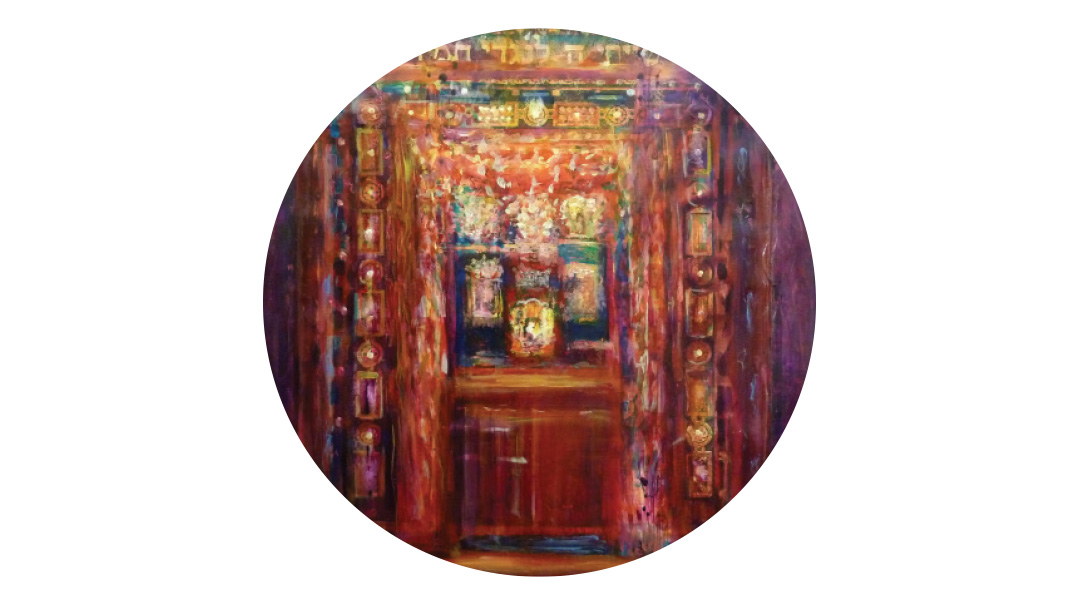Living for Greatness

With faith, even the impossible becomes attainable
T

here has yet to be a generation of Jews not challenged in their emunah in Hashem. We’ve always experienced fear and struggle, our history punctuated with only brief respites of serenity.
Accompanying us through all of the ups and downs of history is our fervent belief in the long-awaited Mashiach. Our steadfast faith in his imminent arrival is testimony to the tenacity of our people.
Faith cannot be forced, but in his Thirteen Principles, the Rambam reminds us that it’s a crucial element of being a Torah-true Jew. In my role as rebbetzin and teacher, I often find myself challenged to give chizuk to someone in a distressing situation; when I fortify them with my emunah, I find myself needing strength.
Yet we continue, move on, and draw strength from one another. “Ish es rei’ehu ya’azoru u’l’achiv yomar chazak — A man should help his friend and to his brother say, ‘Be strong!’ ” (Yeshayahu 41:6). In an encounter with Rav Yona Weinreb, back in 2008, when our long-awaited child was fighting for his life in the NICU, my husband relates how Rav Weinreb took his hands and said, “I give to you and you give to me.”
Faith throughout the Year
Our calendar attests to the numerous national challenges to our faith: Purim, Pesach, Chanukah, Tishah B’Av etc. It’s the spiritual legacy of these days that gives us, in every generation, the opportunity to strengthen and embolden our emunah at that particular time of year.
The Purim story marks our nation’s first foray into exile; just 70 years long, this galus set a precedent for the long exile that would follow. At Achashveirosh’s party, the Jews reveled, having fallen prey to Haman’s miscalculation, in which he claimed that the 70 years allotted for exile had passed and G-d would no longer redeem His people. By joining in Haman’s celebration of his perceived fallibility of our G-d, the Jews displayed a complacency in galus that has since repeated itself in many centuries and many lands. In the absence of anti-Semitism, we often forget that we’re supposed to pine for a different and altogether superior reality. Purim is a time for us to reaffirm that despite the mask of galus, we believe that Hashem is still there.
What lessons can we learn from the Geulah from Mitzrayim?
Recently I read a maamar from Rav Shimshon Pincus that gave me so much strength. In parshas Va’eira (6:3), Hashem tells Moshe Rabbeinu, “U’shmi Hashem lo nodati lahem — with My Name Hashem I was not known to them [the Avos].”
Rashi explains that the name “Hashem,” which denotes Hashem’s faithfulness in fulfilling His promises, was not yet known to them. “Hivtachtem v’lo kiyamti,” Hashem had made promises to them, but they didn’t see them fulfilled.
Avraham Avinu had been promised a grand nation who would inhabit, inherit, and prosper in the land of milk and honey — but neither he, nor Yitzchak, Yaakov, or any of his descendants saw that promise come to fruition. Yet they continued to believe in and serve Hashem with the trust that His words would indeed materialize with grandeur they could only imagine.
While there were many in Egypt who failed to maintain this belief and who didn’t merit to be redeemed, it is those who marched out, who maintained their faith of Hashem, that we continue to emulate. In fact, Pesach is often called in the seforim “chag ha’emunah.”
We Can Attain Greatness
Rav Pincus therefore prods us to look at ourselves and ask if we have that same level of faith those leaving Mitzrayim did, and if not, do we believe in our ability to cultivate it within ourselves? Do we believe that we’re capable of attaining spiritual greatness?
Currently, like those Jews in Egypt, we live in the darkness of galus. Though we continue to fight against the forces of spiritual darkness, we know that the battle will not be won until Mashiach comes. At times we try, we toil, we strive — and yet we seem to fail. We need to know that these are the moments when our emunah is being tested.
Rav Pincus reminds us that we must rally for ourselves during those trying times. “Where are our tefillos for gadlus, where are our yearnings?” Rav Pincus pleads, his pain evident. “Why don’t we want spiritual perfection?”
Rav Pincus cites the Ibn Ezra on the Tenth Commandment, lo sachmod, do not covet. “Can G-d really expect us not to want something that we’re lacking?” the Ibn Ezra asks. He explains that we wouldn’t be jealous of something we don’t think is in our world of possibility. And if we really believed that what our friend has was designated by Hashem especially for him, we’ll realize it’s not in our realm of possibility — and we won’t even covet it. Rav Pincus bemoans the unfortunate flip side of that reality. So many people don’t believe that spiritual greatness is in their world of possibility — shortchanging themselves and limiting their potential.
But even looking at the physical world around us shows us that so many realities that once seemed impossible are now attainable. People with dyslexia can learn to read, there’s technology that assists amputees in walking. Who would have believed 200 years ago that people would regularly get into a giant vehicle that could fly them to any destination across the globe?
Promises Fulfilled
Rav Schwab offers a mashal (Drash Moshe, Va’eira) of a banker who deposits $1,000 in an account and informs a poor man that he has placed it there for him. When the man learns of this account, he’s as thrilled as he would be if he were actually holding the money in hand — because he’s confident in the banker’s wealth and ability to give him money.
With Hashem’s words, “Hivtachtim v’lo kiyamti,” we’re reminded of the reality that promises will be fulfilled. Do we believe that we are Hashem’s precious children and that He is looking out for us? Do we trust that we can develop our personal and collective dreams and aspirations of spiritual greatness?
We can keep shemiras halashon if we try. We can rid ourselves of the nasty middos that hurt our relationships. We can better our levels of tzniyus, in both our dress and our way of life. Our goals in life should be for greatness for ourselves as individuals and for our giant Klal Yisrael family.
Mashiach will come! This confusing galus doesn’t cease to test us, but we must overcome the challenges and taste the sweetness of our mesorah.
Faith in Hashem is something we need to continuously develop. Rav Pincus relates that someone once asked the Brisker Rav whether emunah would be needed once Mashiach comes. “Yes,” the Brisker Rav replied. “There will always be elements of HaKadosh Baruch Hu that we don’t understand.”
But we can trust that Hashem is there for us, all the time. So too, believing in our potential that we can develop complete faith in Hashem isn’t a pipe dream — Hashem on High is waiting for us to connect to Him!
Our Avos held fast to their faith in the Geulah, and their children were redeemed from Mitzrayim. Likewise, we need to fortify our emunah, knowing that our Geulah is imminent, as we repeat three times daily in our Shemoneh Esreh: “He remembers the chesed of the Avos and will bring Geulah to their children b’ahavah, with the greatest love!”
Let’s keep living for greatness.
Rebbetzin Aviva Feiner is the rebbetzin of Far Rockaway’s Congregation Kneseth Israel (The White Shul) as well as a mechaneches in TAG and a visiting lecturer at Stern College.
(Originally featured in Family First, Issue 682)
Oops! We could not locate your form.







